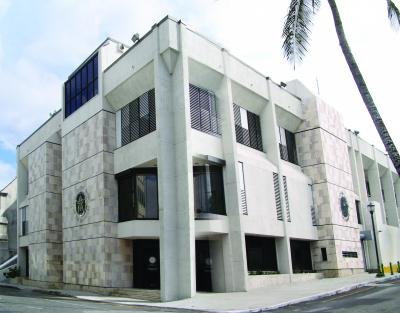“Strategic initiatives to strengthen market competitiveness will be a key focus in 2021”
NASSAU, BAHAMAS — The total number of banks and trust companies licensed in The Bahamas decreased by 10 in 2019 and was reduced further by four in 2020 to 217, according to the Central Bank.
The regulator, in its quarterly economic review for March, noted: “Total employment within banks and trust companies declined by 158 (3.9 percent) to approximately 3,843 in 2020, extending the 1.2 percent decrease in 2019 and an average yearly falloff of 2.2 percent over the past five years.
“An analysis by nationality revealed that both Bahamian and non-Bahamian positions reduced by 155 (4.1 percent) and three (1.2 percent) to 3,599 and 244 respectively. Consequently, the ratio of Bahamians in the banking sector narrowed by 10 basis points to 93.7 percent, vis-à-vis the same period in 2019.
“A disaggregation by assigned functions showed that a majority of Bahamians were engaged in local banking sector roles (66.6 percent), followed by international banking (13.9 percent), trust administration (11.3 percent) and other wealth management-related activities (8.2 percent).”
The Central Bank further noted that last year, total employment in the domestic banking sector that focuses on retail-oriented services decreased by 71 (2.2 percent) to 3,124, a turnaround from a 0.4 percent increase in 2019 and an average yearly reduction of 0.4 percent between 2015 and 2019.
“Similarly, international sector employees contracted by 87 (10.8 percent) to 719, extending the seven percent falloff in the year prior and an average yearly contraction of 7.8 percent over the past five years,” the regulator noted.
“In terms of the composition, the total number of Bahamians within the domestic banking sector fell by 65 (2.1 percent) to 3,051 after remaining unchanged during the previous year. In addition, total non-Bahamian employees declined by six (7.6 percent) to 73, contrasting with a 19.7 percent growth in 2019.
“As a result, the ratio of Bahamian to non-Bahamian employees firmed to 41:1 from 39:1 in the prior year.
“In the international sector, total Bahamian staff lessened by 90 (14.1 percent) to 548, compared to a 6.7 percent falloff in 2019. However, the number of non-Bahamians rose slightly by three (1.8 percent) to 171, vis-à-vis an 8.2 percent decline last year.”
The report also noted that commercial banks registered a net loss of nearly $63 million in the fourth quarter of 2020, reversing a net profit of $61.6 million in the same period of the previous year. Furthermore, for the first quarter of this year, total private sector loan arrears increased by $22.9 million (three percent) over the three-month period, and by $108 million (15.7 percent) year-on-year to $795.9 million.
The regulator concluded that despite the headwinds faced during the year as a result of the COVID-19 pandemic, where SFIs had to adjust operations to comply with emergency orders, the overall financial sector remained relatively stable.
“Modest gains were recorded in tax revenues and expenditures in the local economy. However, cost considerations and subdued credit market conditions curtailed the operation prospects for the domestic sector,” the Central Bank noted.
“Further, The Bahamas continued to experience employment retrenchment across the domestic and the international sectors, due in part to the pandemic and offering of severance packages.
“Nevertheless, the sound regulatory regime and pool of professionals supporting the industry continue to promote The Bahamas as a choice jurisdiction, adding value for clients in varied dimensions.
“With the passage of revised legislation for most of the sector during the year, strategic initiatives to strengthen market competitiveness will be a key focus in 2021 for all regulators.”






